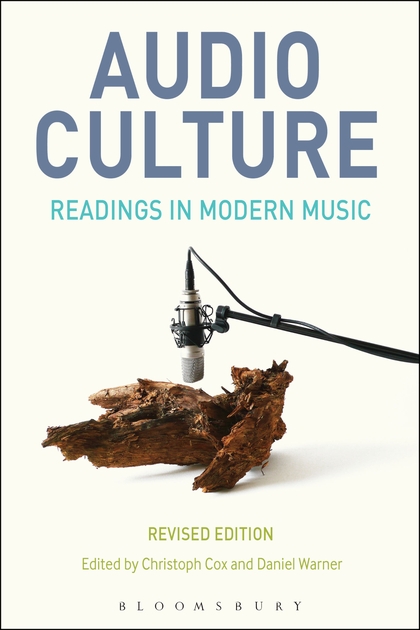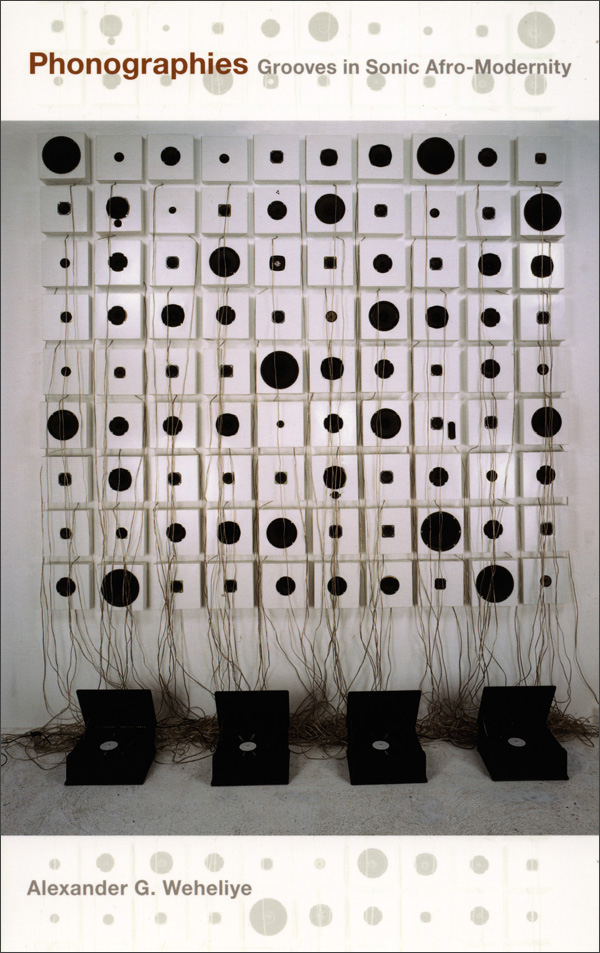Christoph Cox, Daniel Warner (eds.): Audio Culture: Readings in Modern Music (2004/2017)
Filed under book | Tags: · composing, composition, djs, electroacoustic music, electronic music, experimental music, improvised music, listening, minimal music, music, music criticism, music history, music theory, musique concrète, noise, silence, sound

“Audio Culture maps the aural and discursive terrain of vanguard music today. Rather than offering a history of contemporary music, the book traces the genealogy of current musical practices and theoretical concerns, drawing lines of connection between recent musical production and earlier moments of sonic experimentation. It aims to foreground the various rewirings of musical composition and performance that have taken place in the past few decades and to provide a critical and theoretical language for this new audio culture.
Via writings by philosophers, cultural theorists, and composers, Audio Culture explores the interconnections among such forms as minimalism, indeterminacy, musique concrète, free improvisation, experimental music, avant-rock, dub reggae, ambient music, hip hop, and techno. Instead of focusing on the putative “crossover” between “high art” and “popular culture,” Audio Culture takes all of these musics as experimental practices on par with, and linked to, one another.
Audio Culture includes writing by some of the most important musical thinkers of the past half-century, among them John Cage, Brian Eno, Glenn Gould, Umberto Eco, Ornette Coleman, Jacques Attali, Simon Reynolds, Pauline Oliveros, Paul D. Miller, David Toop, John Zorn, Karlheinz Stockhausen, and many others. The book is divided into nine thematically-organized sections, each with its own introduction.”
Publisher Continuum, September 2004
Second, revised edition, Bloomsbury, 2017
ISBN 9781501318351, 1501318357
xviii+646 pages
Reviews: Ian Whalley (Computer Music Journal, 2005), Christopher DeLaurenti (eContact!, 2006), Dene Grigar (Leonardo, 2005), Clemens Gresser (Tempo, 2005), Gregory Taylor (Cycling74, 2018).
PDF, PDF (updated on 2021-2-6)
EPUB, EPUB (updated on 2021-2-6)
Alexander G. Weheliye: Phonographies: Grooves in Sonic Afro-Modernity (2005)
Filed under book | Tags: · black people, djs, hip hop, modernity, music, music history, phonograph, sound, sound recording, technology

“Phonographies explores the numerous links and relays between twentieth-century black cultural production and sound technologies from the phonograph to the Walkman. Highlighting how black authors, filmmakers, and musicians have actively engaged with recorded sound in their work, Alexander G. Weheliye contends that the interplay between sound technologies and black music and speech enabled the emergence of modern black culture, of what he terms ‘sonic Afro-modernity’. He shows that by separating music and speech from their human sources, sound-recording technologies beginning with the phonograph generated new modes of thinking, being, and becoming. Black artists used these new possibilities to revamp key notions of modernity—among these, ideas of subjectivity, temporality, and community. Phonographies is a powerful argument that sound technologies are integral to black culture, which is, in turn, fundamental to Western modernity.
Weheliye surveys literature, film, and music to focus on engagements with recorded sound. He offers substantial new readings of canonical texts by W. E. B. Du Bois and Ralph Ellison, establishing dialogues between these writers and popular music and film ranging from Louis Armstrong’s voice to DJ mixing techniques to Darnell Martin’s 1994 movie I Like It Like That. Looking at how questions of diasporic belonging are articulated in contemporary black musical practices, Weheliye analyzes three contemporary Afro-diasporic musical acts: the Haitian and African American rap group the Fugees, the Afro- and Italian-German rap collective Advanced Chemistry, and black British artist Tricky and his partner Martina. Phonographies imagines the African diaspora as a virtual sounding space, one that is marked, in the twentieth century and twenty-first, by the circulation of culture via technological reproductions—records and tapes, dubbing and mixing, and more.”
Publisher Duke University Press, Durham, NC, 2005
ISBN 0822335778, 9780822335771
xii+286 pages
Reviews: Matthew Somoroff (NewBlackMan, 2006), Greg Tate (Souls, 2007), Emma Louise Kilkelly (Journal of American Studies, 2007), George Lipsitz (Journal of the Society for American Music, 2008).
Commentary: Alexander G. Weheliye (Small Axe, 2014), Tavia Nyong’o (Small Axe, 2014).
PDF (updated on 2021-4-13)
Comment (0)
